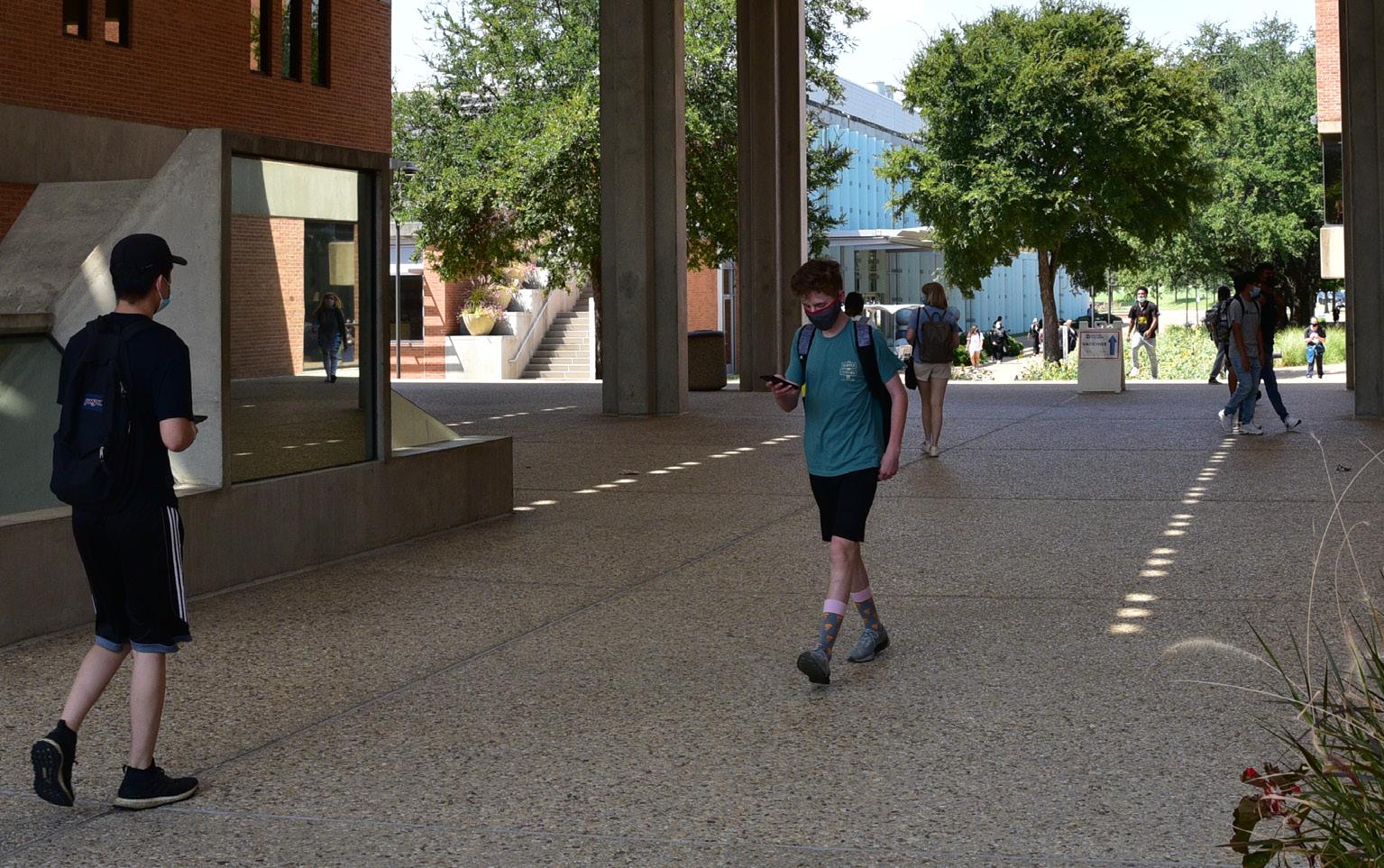
7 minute read
Afghanistan’s evacuation ends
Campus thrives once more with in-person learning
Students walk around Dallas College Richland Campus once again.
Advertisement
Staff Photo Victor London
Barbara Gandica Martinez Interim Editor-in-Chief/Design Editor
As the third week of classes begins, faculty and students are starting to get used to the new
Just before midnight in Kabul on Aug. 30, the last U.S. Military personnel left Afghanistan. According to the Associated Press, the last aircraft to leave Afghan soil took off at 2:29 p.m. CST with Maj. Gen. Chris Donahue, commander of the 82nd Airborne Division of the U.S. Army being the very last soldier to set foot on board, concluding America’s longest recorded war. Previously, it was Vietnam. The Taliban celebrated their victory with The U.S. exit.
The AP reported that there were roughly 150,000 people evacuated, including U.S. citizens , and over 100 more Americans still remaining in Afghanistan, too in fear for their lives to go to the airport. President Joe Biden said he will still work on getting those out who were left behind.
Several days ago, the airport in the nation’s capital city of Kabul was attacked, claiming the lives of 60 who were attempting to escape the tyranny of the war-torn country, along with 13 U.S. service personnel . The culprit was not the Taliban but their arch enemy identified as ISIS-K.
The question that remains is where does Afghanistan go from here? Will they be prompted to invade other countries in an attempt to expand their empire? History professor at the Richland campus of Dallas College, Dr. Clive Siegle, remarked, “I doubt it.” He stated that Afghanistan itself is a “very complex country and it normal at Dallas College. This new semester has brought up challenges and significant changes to our campus. Not only is this the first in-person semester as “one college,” but we are coming back from what was a solely online environment.
will be that way for a very long time,” when referring to nations that have invaded it before the U.S., such as, the Soviet Union throughout the 1980s. Their predecessors were the United Kingdom in the mid-19th century (1839-1842). The country has a centurieslong history of war.
“Once we leave, and the Afghans are totally on their own, so-to-speak, there’ll be governments on the outside that will still try, somehow or other, to influence Afghanistan, including their neighbors.” When asked about Iran, Iraq and Pakistan, Siegle said, “Will the Taliban still be there? Probably not.”
About the outcome of the Taliban’s regime, Siegle said, “I think to a certain extent their energies are going to be spent trying to an effect to solidify control of their country to start with.”
“There are plenty people left inside Afghanistan who are not Taliban, so how they’re
“It was surreal since I haven’t been back in my office since March of 2020, since spring break,” said Professor Michelle Navarro from the history department.
The mask mandate was a recruiting debate on the weeks leading to the start of the semester. “I was bit nervous, anxious about knowing if my students would be compliant or not with wearing masks,” said Professor Marian Ichaso Lefeld. Despite her worries, Lefeld said that she has “seen nothing but compliance in my classes. That has been my experience. Students have been great.” Navarro has seen a different attitude among students this semester. “I think students have a different purpose on being on campus,” she said. Navarro sees that students are more driven to achieve their academic goals because of all the changes they have gone through during the pandemic. “One of my students in my online class said that during the pandemic [she] had all of this extra time and that [she] thought that rather than wasting it by watching Netflix, thought ‘let me do something productive’ and take a class”, Navarro said. Lefeld has a similar outlook on students. “I am seeing great excitement, and I think people are overall happy to be present and connect to other people.” Lefeld is the sponsor of the
going to handle that would take a great deal of their energy I would imagine.” He added, “But with Afghanistan as an imperial power? They’re surrounded by people way-way stronger than they are, so that’s probably never going to happen.”
One question remains at the Richland campus; will there be an influx of new Afghani students joining the student body? “I hope so,” Siegle said. “We have people from Afghanistan now, we’re a diverse campus I certainly think that would be a good thing and they’ll have tales to tell as well.” He stated that Dallas itself has an attraction to refugees, “as a nation full of immigrants,” they [the refugees] will find their way like everyone else. I have every confidence that they probably will.”
Richland economics professor Patrick Moore said he fears for the remaining civilians in Afghanistan, especially the women and young girls, estimating that the number of art club, and during the pandemic, they held meetings through Microsoft Teams but had low attendance. “Today we had our first art club meeting, and we had great attendance.”
The pandemic forced faculty and students to adapt to a new online environment, and they are taking those new skills to in-person classes. “One thing that I started doing was doing more YouTube videos, more social mediabased (content),” said Navarro. During quarantine, she also used the Remind app to keep in contact with her students, and today she uses it to get feedback on reading assignments. Navarro is also known for her live check-ins on the ALAS club Instagram page. The check-ins were live streams where students could discuss their day-to-day life and learn about the traditions of various Latin American countries.
Returning to campus has improved classes experiences. “I think what was missing when we were meeting virtually was how in person, we tend to feed off each other energies and energy levels and the nuances of communication that is practically impossible in a virtual setting,” said Lefeld. The pandemic is not yet over, but slowly students are getting back to a sense of normalcy. “Every morning when I come to class to teach, I feel like it is a gift,” said Navarro. “Yes, we are all down, but we are in this together.”
Afghani refugees attending Richland campus may be significantly lower than expected and may not grow for a while. Moore said, “If they are admitted as refugees, then there’s a long process that anyone who obtains refugee status has to go through.” He added “We, the U.S., may relax our rules about who gets to come to the U.S. of those who are evacuated Afghans.” Moore said now that the war has officially ended, there won’t be any noticeable changes in economy for the United States even if it was not being funneled into the war.
“We’ve been spending $10 billion a year there, but that’s a tiny fraction of the U.S. budget.” According to Biden, the annual $10 billion spending has estimated to total up to $2 trillion during his speech on Aug 31. Moore added “That money will be redirected in other areas; for a long time we will be spending a bunch of money trying to deal with the people who have evacuated.”
Moore, however, agrees with Siegle about the Taliban being unable to invade other countries.
Both Richland faculty members agree about the initial reason the U.S. invaded Afghanistan; to thwart terrorists from taking refuge there and attacking the U.S. Both also agree with the evacuation. Moore said he wished that the evacuation was handled more thoroughly, such as not sharing it with the news media, creating a high risk that the Taliban would intercept and prevent the choppers from picking up the civilians that were trying to escape. Moore believes more people could have been evacuated. RichlandStudentMedia.com
Evacuation in Afghanistan ends, leaves country with uncertain future
Ryan Bingham Duff Online/Special Projects
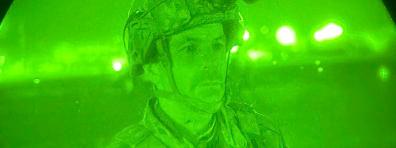
Photo The Associated Press Maj. Gen. Chris Donahue is the last man out as U.S. forces leave Afghanistan.
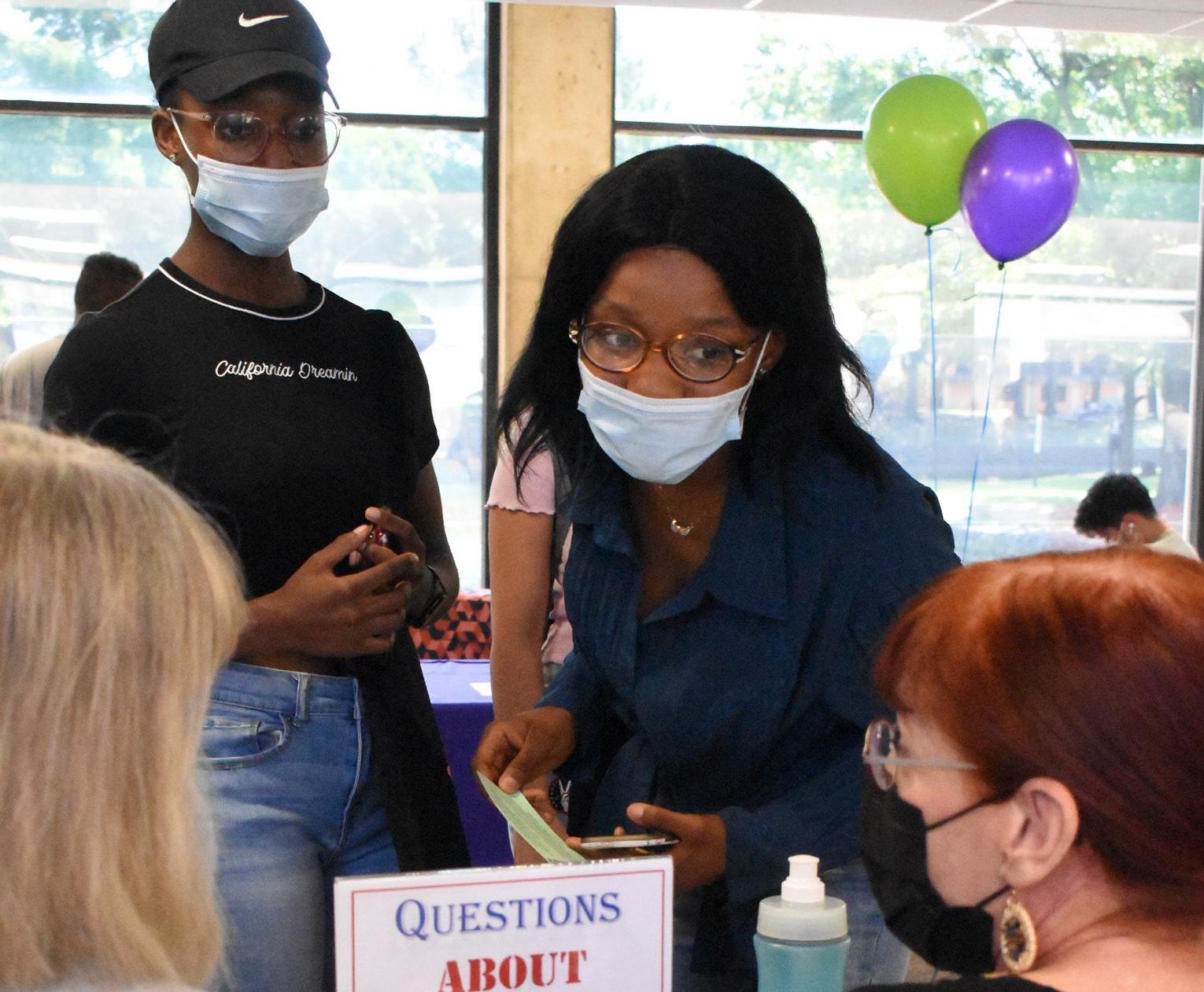
Staff Photos Yessi Lipscomb
Students get involved
On September 1, students in El Paso Hall visited with representatives from campus organizations such as Student Government Association and the Office of Student Life at the Student Involvement and Resource Fair. Above: Students get information about voting. Top left: Students get free t-shirts and information about campus from Dara Eason. Bottom right: Students get information about Phi Theta Kappa.
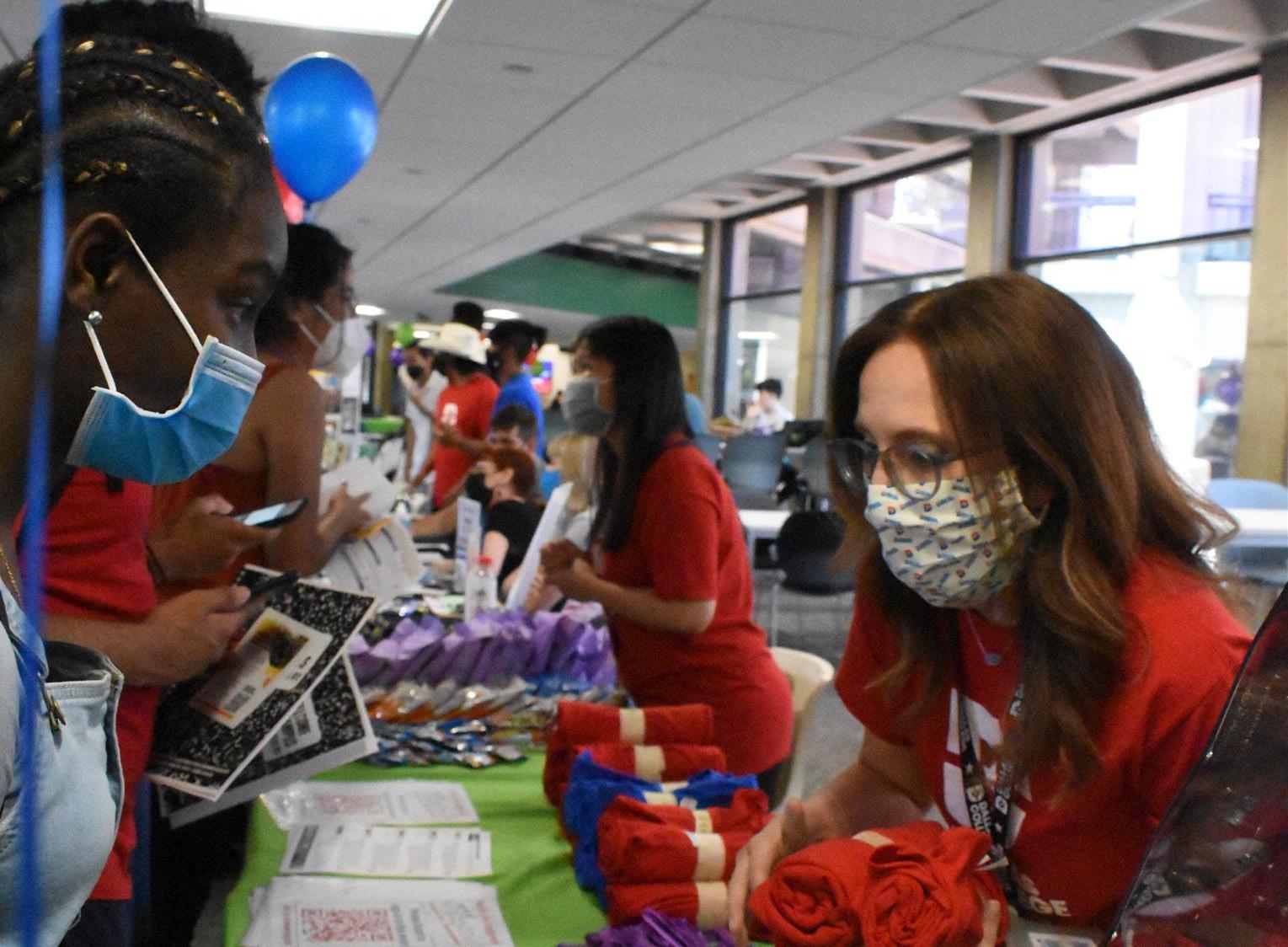
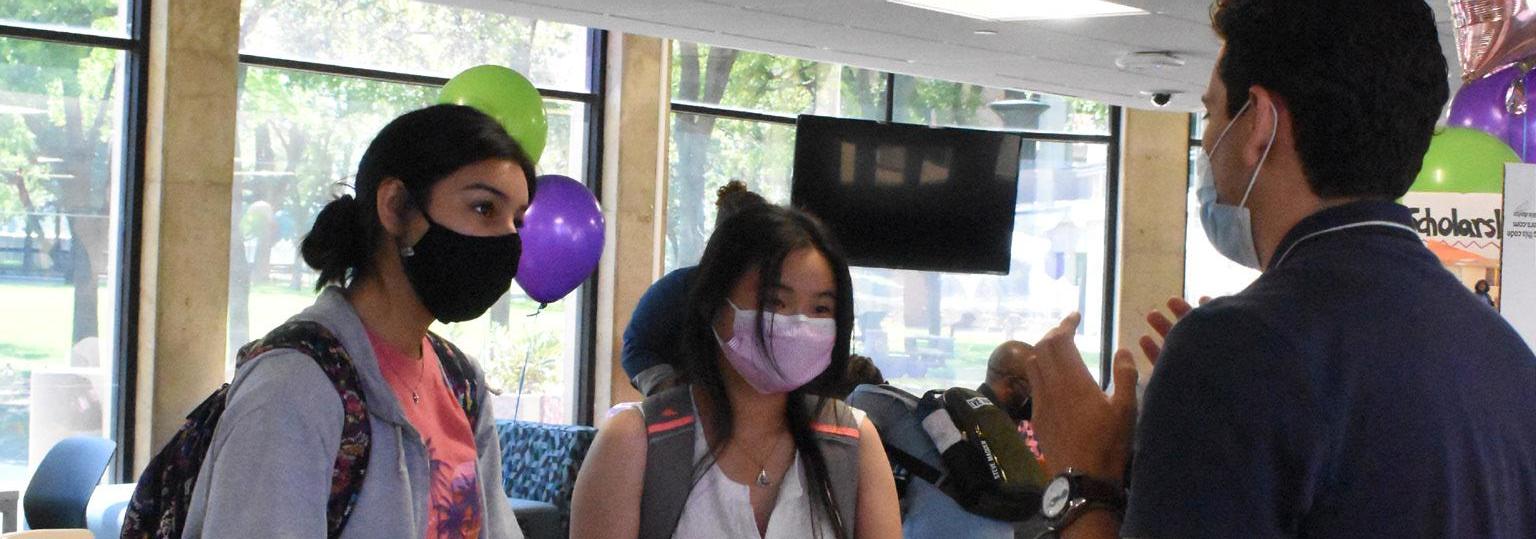
INCREASE your OPPORTUNITIES
Complete your bachelor’s degree
Gain the advantage of TWU’s legacy and leadership in health-related professions. Take classes online or in person.




